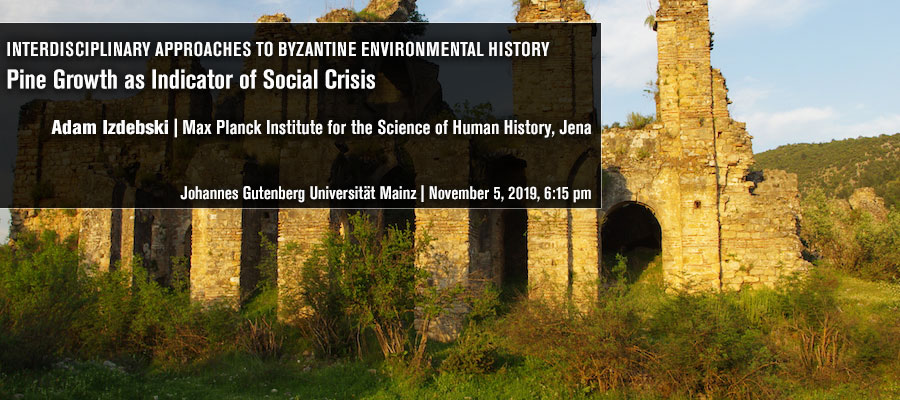Interdisciplinary Approaches to Byzantine Environmental History: Pine Growth as Indicator of Social Crisis, lecture by Adam Izdebski (Max Planck Institute for the Science of Human History, Jena), Johannes Gutenberg-Universität Mainz, November 5, 2019, 6:15 pm
Crisis situations experienced by human societies always have an environmental dimension. Studying past landscapes through palynology is one of the ways to understand this complex relationship. This lecture studies pollen profiles from the Eastern Mediterranean in the period from AD 300 to 1500, in order to understand the phenomenon of the “pine signal”, i.e. the synchronous regional increase in the proportion of pine pollen.
By investigating the temporal and spatial distribution of the pine signal, it can be shown that a disturbance of the existing agroecosystem and secondary ecological succession co-occurred with major socio-economic and political transitions in Byzantine history.
Adam Izdebski is a historian of Late Antiquity and Byzantium, with strong interest in environmental history. He also works on social and religious history of late antiquity and on premodern Central Europe. His research aims to integrate scientific, archaeological, and textual evidence. He leads the Independent Max Planck Research Group "Palaeo-Science and History" at the Max Planck Institute for the Science of Human History in Jena.
